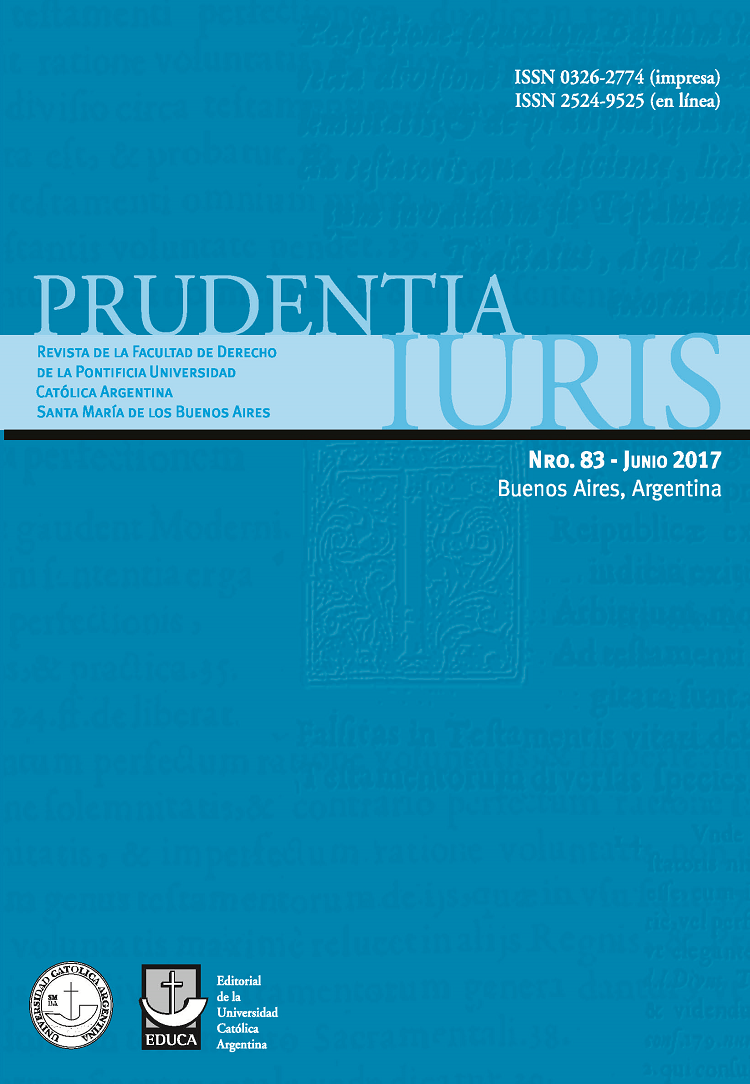Dignity and human duties
Palabras clave:
Dignidad, Persona humana, Derechos Humanos, Deberes, ModernidadResumen
The concept of dignity has a long history in western culture. Contemporaneously it has had a grand expansion since the Universal Declaration of Human Rights of 1948, other international treaties, and many national constitutions, through which it was tried to consolidate the inviolability of the human person. However, because of the undefined term used and the dissimilar and contradictory ideologies and philosophical movements, the declarations mentioned above and the attribute of dignitas granted to every human being are passible of interpretations that sow deep disagreements. Starting from the notion that classical philosophy and its current continuity offer to the “human dignity”, these reflections point to the specific object of our concern as jurists, the law, whose notion influenced by individualism has also undergone a metamorphosis, which includes the asymmetry with the legal duties, which have been relegated to oblivion.Downloads
Descargas
Publicado
Cómo citar
Número
Sección
Licencia

Esta obra está bajo una Licencia Creative Commons Atribución-NoComercial-CompartirIgual 4.0 Internacional.
Atribución-NoComercial-CompartirIgual 4.0 Internacional (CC BY-NC-SA 4.0)
Usted es libre de:
- Compartir — copiar y redistribuir el material en cualquier medio o formato
- Adaptar — remezclar, transformar y construir a partir del material
- La licenciante no puede revocar estas libertades en tanto usted siga los términos de la licencia
Bajo los siguientes términos:
Atribución — Usted debe dar crédito de manera adecuada, brindar un enlace a la licencia, e indicar si se han realizado cambios. Puede hacerlo en cualquier forma razonable, pero no de forma tal que sugiera que usted o su uso tienen el apoyo de la licenciante.
NoComercial — Usted no puede hacer uso del material con propósitos comerciales.
CompartirIgual — Si remezcla, transforma o crea a partir del material, debe distribuir su contribución bajo lla misma licencia del original.
- No hay restricciones adicionales — No puede aplicar términos legales ni medidas tecnológicas que restrinjan legalmente a otras a hacer cualquier uso permitido por la licencia.
Avisos:
- No tiene que cumplir con la licencia para elementos del materiale en el dominio público o cuando su uso esté permitido por una excepción o limitación aplicable.
Declaración de privacidad
Los nombres y direcciones de correo-e introducidos en esta revista se usarán exclusivamente para los fines declarados por esta revista y no estarán disponibles para ningún otro propósito u otra persona.



